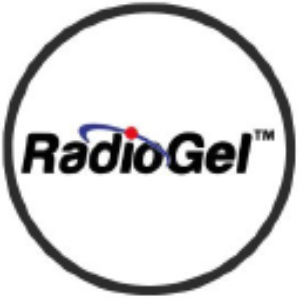Vivos Inc Announces Johns Hopkins University (Veterinary Clinical Trials Network) is a New Regional Clinic for Isopet®
Rhea-AI Summary
Vivos Inc. (OTCQB: RDGL) has announced a partnership with the Johns Hopkins Veterinary Clinical Trials Network for the Isopet® initiative, aimed at conducting animal studies on specific cancers. This collaboration is expected to enhance data collection for publishing in leading journals, thereby increasing awareness and acceptance of Isopet® within the veterinary oncology community. The Isopet® technology, based on yttrium-90, targets tumor treatment in animals and parallels the human treatment method, Radiogel™. The company aims to expand its regional centers and establish a robust presence in the veterinary market.
Positive
- Partnership with Johns Hopkins enhances credibility and data collection for Isopet® studies.
- Isopet® technology is poised for expansion with plans for regional clinics across the U.S. and internationally.
- FDA classification of Isopet® as a medical device supports marketing and sales to veterinary clinics.
Negative
- None.
News Market Reaction
On the day this news was published, RDGL declined 2.70%, reflecting a moderate negative market reaction.
Data tracked by StockTitan Argus on the day of publication.
This replaces and corrects the press release from November 22. Johns Hopkins (VCTN) Veterinary Clinical Trials Network is our teaming partner not the Center for Image Guided Animal Therapy (CIGAT).
Richland WA, Nov. 23, 2021 (GLOBE NEWSWIRE) -- Vivos Inc. (OTCQB: RDGL), Vivos Inc announced that Johns Hopkins University VCTN, Veterinary Clinical Trials Network, is now an Isopet® regional clinic. Additionally, Johns Hopkins will also perform new Isopet® animal studies on various specific cancers. They have the required radioactive material license and have completed their training certification for Isopet®.
Dr. Mike Korenko stated, “Our business plan is to establish new IsoPet® regional centers across the United States and then internationally. John Hopkins University has an excellent reputation and we are excited to add Johns Hopkins as an Isopet® regional clinic. This important relationship will also help meet our objective of obtaining high quality data on a range of cancers that can be published in leading journals. These publications are the optimal way to increase awareness of Isopet® and to gain broader acceptance from the veterinarian/oncology community.”
About Vivos Inc. (OTCQB: RDGL)
Vivos Inc. has developed an Yttrium-90 based injectable brachytherapy device, for the treatment of tumors in animals (Isopet®) and in humans (Radiogel™). Brachytherapy uses highly localized radiation to destroy cancerous tumors by placing a radioactive isotope directly inside the treatment area using the company’s proprietary hydrogel technology. The injection delivers therapeutic radiation from within the tumor without the entrance skin dose and associated side effects of treatment that characterize external-beam radiation therapy. This feature allows safe delivery of higher doses needed for treating both non-resectable and radiation-resistant cancers.
Radiogel™ is a hydrogel liquid containing tiny yttrium-90 phosphate particles that may be administered directly into a tumor. The hydrogel is an yttrium-90 carrier at room temperature that gels within the tumor interstitial spaces after injection to keep the radiation sources safely in place. The short-range beta radiation from yttrium-90 localizes the dose within the treatment area so that normal organs and tissues are not adversely affected.
Radiogel™ also has a short half-life – delivering more than
The Isopet® Solutions division is using university veterinary hospitals to demonstrate the safety and therapeutic effectiveness for different animal cancers. Testing on feline sarcoma at the Washington State University was completed in 2018 and testing on canine soft tissue sarcomas at the University of Missouri was completed in 2019.
In 2018 the Company obtained confirmation from the FDA Center for Veterinary Medicine that Isopet® is classified as a medical device according to its intended use and means by which it achieves its intended purpose. The FDA also reviewed the product labeling which included canine and feline sarcomas as the initial indications for use. The FDA does not require pre-market approval for veterinary devices so no additional approval was required for treating skin cancer, which is the largest market sector. Following the demonstration phase, Vivos is able to generate revenue through the sale of Isopet® to University animal hospitals and private veterinary clinics.
Isopet® for treating animals uses the same technology as RadioGel™ for treating humans. The Food and Drug Administration advised using different product names in order to avoid confusion and cross-use.
Safe Harbor Statement
This release contains forward-looking statements within the meaning of the Private Securities Litigation Reform Act of 1995. You can identify these statements by the use of the words "may," "will," "should," "plans," "expects," "anticipates," "continue," "estimates," "projects," "intends," and similar expressions. Forward-looking statements involve risks and uncertainties that could cause results to differ materially from those projected or anticipated. These risks and uncertainties include, but are not limited to, the Company's ability to successfully execute its expanded business strategy, including by entering into definitive agreements with suppliers, commercial partners and customers; general economic and business conditions, effects of continued geopolitical unrest and regional conflicts, competition, changes in technology and methods of marketing, delays in completing various engineering and manufacturing programs, changes in customer order patterns, changes in product mix, continued success in technical advances and delivering technological innovations, shortages in components, production delays due to performance quality issues with outsourced components, regulatory requirements and the ability to meet them, government agency rules and changes, and various other factors beyond the Company's control.
CONTACT:
Vivos Inc.
Michael K. Korenko, Sc.D.
President & CEOMKorenko@RadioGel.com








